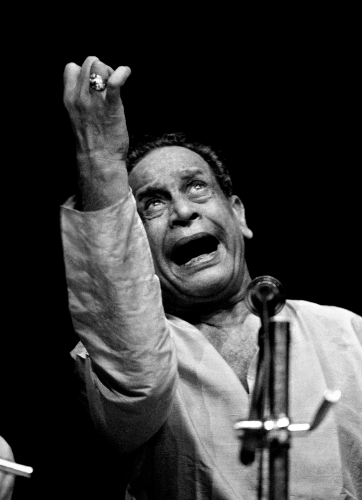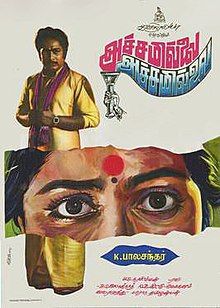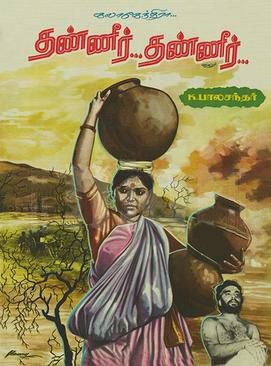This section is for paid subscribers only. Our subscription is only $3700/- for one full year.
You get unlimited access to all paid section and features on the website with this subscription.
Subscribe to read full article
This section is for paid subscribers only. Our subscription is only $37/- for one full year.
You get unlimited access to all paid section and features on the website with this subscription.
Not ready for a full subscription?
You can access this article for $2, and have it saved to your account for one year.
- Release Date18/05/1984
- GenrePolitical Satire
- FormatColour
- LanguageTamil
- Run Time186 min
- Length4400 meters
- Number of Reels15
- Gauge35 mm
- Censor RatingA
- Censor Certificate Number4967
- Certificate Date09/05/1984
The film is narrated in a flashback mode with Thenmozhi (Saritha) in prison. Thenmozhi, a worker in a textile factory, likes Ulaganathan (Rajesh) for his gentle behaviour. He is respected by everyone in the village and Alankaram (Pavithra), a young widow of his village, falls for him. Alankaram's mother proposes that her daughter marry Ulaganathan, but he rejects their proposal. He marries Thenmozhi on an Independence Day and they are a loving couple.
Members from the Yellow party, one of the two prominent political parties in the state, woo Ulaganathan to join them. He initially refuses, but they lure him to join by promising a ministerial berth if the party wins and also gift him gold ornaments. Thenmozhi gets upset with these developments as she notices a sea change in his attitude and behaviour. She argues with him quite often about this, but Ulaganathan is least influenced by her. When she conceives, she goes to her maternal home for delivery; by the time she returns home with their son, Ulaganathan has quit the Yellow party, joined the opponent Purple party, and been elected to the Legislative Assembly. He also moves to a new bungalow gifted to him by the Purple party. Thenmozhi, unable to come to terms with his lack of loyalty, argue with him, but in vain. He strictly advises her to remain obedient to him in all ways and refrain from advising or arguing with him. The gap between them widens when Thenmozhi refuses to satisfy his sexual needs citing his lack of loyalty.
Ulaganathan brings Alankaram home as his concubine to meet his needs and neglects Thenmozhi completely. Alankaram and her mother become power centres at home and they wound Thenmozhi with their words while Ulaganathan's father remains a mute spectator. Thenmozhi's dwarf brother Suthanthiram (meaning freedom), who had run away from home as a child, returns and fights for Thenmozhi's rights, but Ulaganathan silences him with money. Unable to continue living there, Thenmozhi steps out with her child. Ulaganathan ensures that her erstwhile employer doesn't employ her, so she ends up as a servant maid and lives with her visually challenged father. One day, when she is out working, her child (in the custody of her father) takes infant steps, gets washed away in a flood and dies. Ulaganathan arranges for her father's eye surgery and Thenmozhi becomes lonely with everyone supporting Ulaganathan.
When Ulaganathan's party becomes weak, the party chief advises him to mobilize more members to strengthen the party. Ulaganathan instigates communal clashes and indulges in several atrocities to get people on his side. Alankaram overhears his plans, informs Thenmozhi of the same, and gets killed by his people. Thenmozhi meets Ulaganathan and requests him to stop his atrocities and surrender to the police. But he ridicules her and advises her to join him for the Independence Day celebrations, which also happens to be their wedding anniversary. Thenmozhi comes to the function holding a garland of flowers with a knife hidden in it and garlands him. As he expresses his happiness about his wife's return, she stabs him and he succumbs. The police arrest her and the film ends with Suthanthiram (freedom) crying under Gandhi's statue.
[from the book Pride of Tamil Cinema: 1931 to 2013 by G Dhananjayan, Blue Ocean Publishers, 2014]
Cast
Crew
-
BannerKavithalaya Productions
-
Director
-
Producer
-
Music Director
-
Lyricist
-
Story Writer
-
Screenplay
-
Dialogues
-
Cinematography
-
Editing
-
Art Director/Production Design











.jpg)



